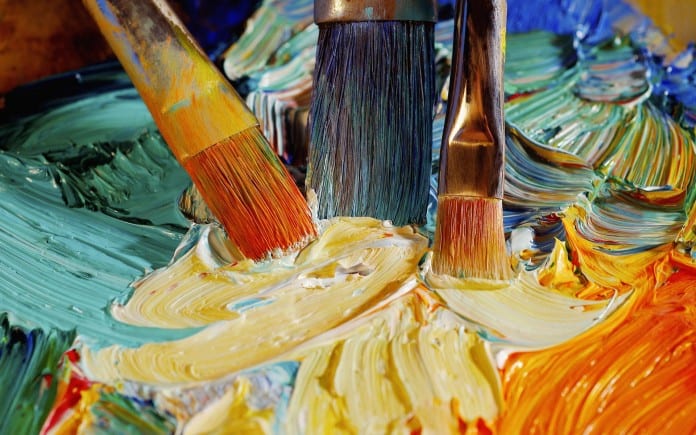We are a professional blog site that may receive compensation or free samples from the companies whose products and topics we write about. We are independently owned, and the opinions expressed here are of the writer. To read the full disclosure click here.
______________________________
Art therapy is a form of psychotherapy that puts the focus of expression on artistic creation. As patients work on different art projects they often open up and engage in a dialogue with a professional art therapist about specific issues.
When a key issue gets particularly difficult to talk about, patients may express their feelings by painting or sculpting as opposed to verbalizing their issues. This visual expression can explore emotions that patients may not be know how to express in words.
 “I guess that’s why I try to paint with my soul and heart … It makes me proud to be who I am” Ronny, a behavioral patient, said in his art therapy testimonial. “It tends to make me forget about my disability with bipolar disorder – and that I’m a normal person.”
“I guess that’s why I try to paint with my soul and heart … It makes me proud to be who I am” Ronny, a behavioral patient, said in his art therapy testimonial. “It tends to make me forget about my disability with bipolar disorder – and that I’m a normal person.”
One art therapy strategy is to trace an outline of one’s body and then fill the outline with colors that represent things core to that individual’s life. Some people may include colors for family members, a favorite sport, or even colorful representations of their burdens and anxieties.
By mapping out the people and emotions that are central in their lives with this technique, patients can pinpoint the areas they would like to grow – such as working through anxieties or strengthening a particular skill. The finished result shows them a representation of their unique circumstances and encourages the use of that information as a starting point toward individual improvement.
 Art therapy incorporates a number of different techniques tailored to key issues, including past traumas, substance abuse, disabilities, and so on. The patient creates an art piece while talking through issues; their conversations shaping the final product into something significant between patient and therapist.
Art therapy incorporates a number of different techniques tailored to key issues, including past traumas, substance abuse, disabilities, and so on. The patient creates an art piece while talking through issues; their conversations shaping the final product into something significant between patient and therapist.
The use of art therapy is important because it gives the patient a sense of accomplishment at the end of the session. Not only will they have worked through a portion of their issues but they will have created something – no matter the skill level of the patient, the most important is what they learn about themselves along the way.
Art therapy is especially beneficial for children with behavioral problems, but can also be useful for adults when dealing with everyday stress or for therapeutic self-expression.
Art therapists are able to give professional help and are experts at directing sessions to an enlightening end. However, simple art therapy tasks can be beneficial to those looking to alleviate stress or express themselves – anyone can gain something from practicing art therapy.





